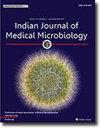实验室和现场环境中伤寒体外诊断测定性能评价的标准规程
IF 1.3
4区 医学
Q4 IMMUNOLOGY
引用次数: 0
摘要
伤寒是印度和其他东南亚国家的主要公共卫生问题。传统的诊断依赖培养方法,敏感性差,血清学方法在流行地区作用有限。不正确的诊断导致抗生素滥用、疾病并发症、多重耐药菌株的出现和传播。有必要开发高质量的诊断测试,以便对伤寒进行有效和早期诊断。这将有助于早期患者管理、疾病负担估计和评估包括疫苗在内的公共卫生干预措施的影响。目的本文描述了在血液/血清/血浆样品中检测伤寒沙门氏菌抗原或抗体或基因片段的体外诊断试验进行许可前(分析)和现场(临床)性能评估的标准方案。材料和方法分析性能评估方案描述了使用特征良好的临床样本对三种不同IVD格式的诊断准确性研究,现场验证方案描述了进行横断面研究以评估急性未分化发热性疾病IVD性能的方法。后者也可用于建立伤寒样本生物库。两种方案都使用统计上显著的样本量,并描述了详细的样本面板(包括交叉反应样本)。这些方案将有助于对伤寒ivd进行强有力的评估,特别是在流行地区和缺乏谓词装置的情况下。据我们所知,这是此类综合性指导文件中的第一份,可以在类似情况下进行调整。本文章由计算机程序翻译,如有差异,请以英文原文为准。
Standard protocols for performance evaluation of typhoid fever in-vitro diagnostic assays in laboratory and field settings
Introduction
Typhoid fever is a leading public health problem in India and other South East Asian countries. Its diagnosis traditionally relies on culture methods with poor sensitivity, and serological methods with limited role in endemic areas. Incorrect diagnosis results in antibiotic misuse, disease complications, emergence and spread of multidrug-resistant strains. There is a need to develop quality diagnostic tests for effective and early diagnosis of typhoid fever. This will help in early patient management, disease burden estimation, and assessing the impact of public health interventions including vaccines.
Aim
This paper describes standard protocols for conducting pre-licensure (analytical) and field (clinical) performance evaluation of in-vitro diagnostic tests that detect S. Typhi antigens or antibodies or gene segments in blood/serum/plasma samples.
Material and methods
The analytical performance evaluation protocol describes diagnostic accuracy studies for three different IVD formats using well-characterized clinical samples, and the field validation protocol describes the methodology for conducting a cross-sectional study for assessing IVD performance in acute undifferentiated febrile illness. The latter may also be used to establish a typhoid sample biobank. Both the protocols use statistically significant sample size and describe a detailed sample panel (including cross reactive specimens).
Discussion
These protocols will help in robust evaluation of IVDs for typhoid, especially in endemic areas and in absence of a predicate device. To the best of our knowledge, this is the first such comprehensive guidance document of their kind, which may be adapted across similar settings.
求助全文
通过发布文献求助,成功后即可免费获取论文全文。
去求助
来源期刊

Indian Journal of Medical Microbiology
IMMUNOLOGY-
CiteScore
2.20
自引率
0.00%
发文量
154
审稿时长
73 days
期刊介绍:
Manuscripts of high standard in the form of original research, multicentric studies, meta analysis, are accepted. Current reports can be submitted as brief communications. Case reports must include review of current literature, clinical details, outcome and follow up. Letters to the editor must be a comment on or pertain to a manuscript already published in the IJMM or in relation to preliminary communication of a larger study.
Review articles, Special Articles or Guest Editorials are accepted on invitation.
 求助内容:
求助内容: 应助结果提醒方式:
应助结果提醒方式:


